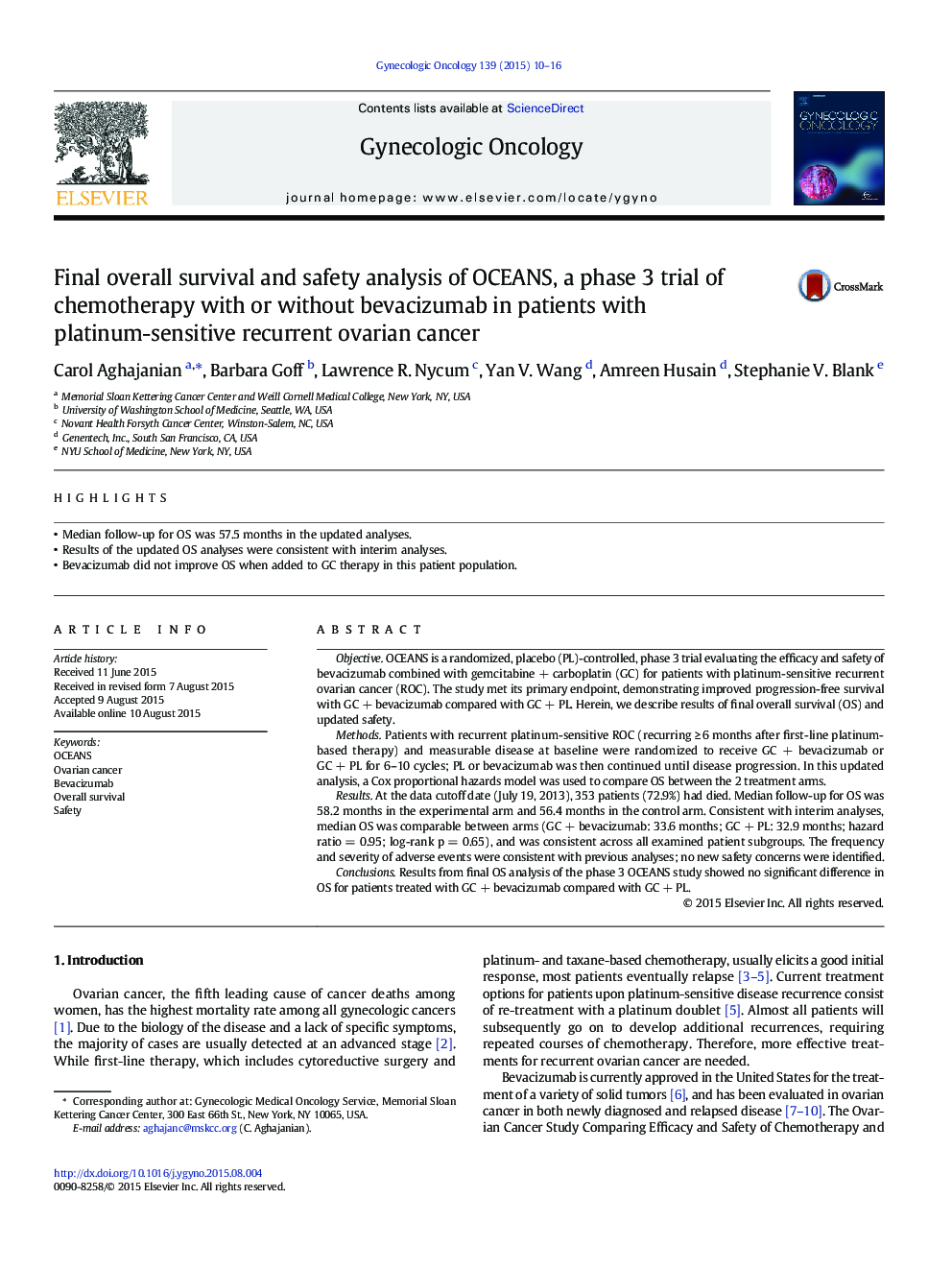| Article ID | Journal | Published Year | Pages | File Type |
|---|---|---|---|---|
| 3942539 | Gynecologic Oncology | 2015 | 7 Pages |
•Median follow-up for OS was 57.5 months in the updated analyses.•Results of the updated OS analyses were consistent with interim analyses.•Bevacizumab did not improve OS when added to GC therapy in this patient population.
ObjectiveOCEANS is a randomized, placebo (PL)-controlled, phase 3 trial evaluating the efficacy and safety of bevacizumab combined with gemcitabine + carboplatin (GC) for patients with platinum-sensitive recurrent ovarian cancer (ROC). The study met its primary endpoint, demonstrating improved progression-free survival with GC + bevacizumab compared with GC + PL. Herein, we describe results of final overall survival (OS) and updated safety.MethodsPatients with recurrent platinum-sensitive ROC (recurring ≥ 6 months after first-line platinum-based therapy) and measurable disease at baseline were randomized to receive GC + bevacizumab or GC + PL for 6–10 cycles; PL or bevacizumab was then continued until disease progression. In this updated analysis, a Cox proportional hazards model was used to compare OS between the 2 treatment arms.ResultsAt the data cutoff date (July 19, 2013), 353 patients (72.9%) had died. Median follow-up for OS was 58.2 months in the experimental arm and 56.4 months in the control arm. Consistent with interim analyses, median OS was comparable between arms (GC + bevacizumab: 33.6 months; GC + PL: 32.9 months; hazard ratio = 0.95; log-rank p = 0.65), and was consistent across all examined patient subgroups. The frequency and severity of adverse events were consistent with previous analyses; no new safety concerns were identified.ConclusionsResults from final OS analysis of the phase 3 OCEANS study showed no significant difference in OS for patients treated with GC + bevacizumab compared with GC + PL.
